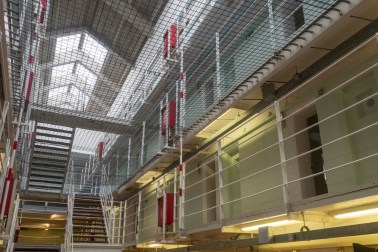From Shakespeare’s Richard II, lines spoken by John of Gaunt.
This royal throne of kings, this sceptred isle,
This earth of majesty, this seat of Mars,
This other Eden, demi-paradise,
This fortress built by nature for herself
Against infection and the hand of war,
This happy breed of men, this little world,
This precious stone set in the silver sea,
Which serves it in the office of a wall,
Or as a moat defensive to a house
Against the envy of less happier lands;
This blessed plot, this earth, this realm, this England,
this nurse, this teeming womb of royal kings,
Feared be their breed and famous by their birth,
Renowned for their deeds as far from home
For Christian service and true chivalry
As is the sepulchre, in stubborn Jewry,
Of the world’s ransom, blessed Mary’s son;
This land of such dear souls, this dear dear land,
Dear for her reputation through the world,
Is now leased out – I die pronouncing it –
Like to a tenement or a pelting farm.
England, bound in with the triumphant sea,
Whose rocky shore beats back the envious siege
Of watery Neptune, is now bound in with shame,
With inky blots and rotten parchment bonds.
That England that was wont to conquer others
Hath made a shameful conquest of itself.
As all families are families in different ways, so are all nations, nations. What is England? It’s a question Shakespeare tackles in the history plays and one of the answers that emerges is that England is an obsession with its own past.
Shakespeare took part in that obsession. That’s doubly true in these lines. Not only is Richard II about events which were two hundred years old when it was written and first performed, but these lines are spoken by someone who is himself thinking about England’s history. Thinking about England’s past is something we have in common with theatre goers in the 1590s and, Shakespeare suggests, John of Gaunt in the 1390s.
Gaunt is worried by Richard II’s misgovernment. England – once a proud and independent nation – has been brought low by fiscal mismanagement. Richard II has borrowed heavily and the nation is in hock. Gaunt compares this sorry tale with Adam and Eve’s Fall. When he talks about England’s past, it is as an ‘other Eden’, a ‘demi-paradise’. But now it is nothing more than a mortgaged ‘tenement or a pelting [i.e. worthless] farm’.
Gaunt seems particularly struck by the contrast between England’s lucky geography and the disastrous results of misgovernment. There seems something absurd about the way money can eclipse the grandeur of the landscape. Compared to the ‘rocky shore’ which ‘beats back the envious siege’ of the ocean and which, more importantly, ‘serves it in the office of a wall’ by holding back foreign invaders, the ‘inky blots and rotten parchment bonds’ of Richard’s ill-advised loan agreements seem ridiculous and inconsequential. And yet, Gaunt insists, these scrappy legal documents have wiped out all that made England admirable. The land might be part of England, but England is not the land. We have to face up to the fact that our own bad decisions have made us who we are.
There’s a sense in Gaunt’s speech that England is too good for the English. Nature has given the English nation every blessing (and our ancestors have set us a good example), yet England has ‘made a shameful conquest of itself’. Just as Adam and Eve didn’t deserve the Garden of Eden, neither do the English deserve the ‘other Eden’ of England. Looked at like this, Gaunt’s speech is a sober vision of what it is to be English. It suggests pride in England’s land and history, but not much hope for its present or future.
What is England today? Well it’s still here, and we still have to look to the past to understand what it is. Speaking personally, two things above all sanctify England in my heart, which is why I keep writing about them. One is Shakespeare and the other is the Civil War. Both are sublime and terrifying – the first is also gorgeous. Shakespeare strained our language through a web of beauty. He made English a sacred language like Hebrew or classical Arabic, a gateway to some intimation of a truth beyond the sayable. Fifty years later the land passed through an apocalypse of fire and blood. A generation of men and women knew in their hearts that God – the very Lord of Hosts who spoke in thunder on Sinai – had joined the charge at Marston Moor and scattered Prince Rupert’s cavalry. That incredible belief burnt so fiercely that it scorched away a thousand years of kingship and forged a new idea of England as a nation in which the people were sovereign. Put Shakespeare and the Civil War together and you get a free people speaking a sacred tongue in a holy land.
Not many people, I fear, share these tastes. More might feel some sympathy (perhaps without knowing it) with Gaunt’s conviction that England’s best days are behind it. The fear that England has betrayed itself lies behind ideas of our nation as varied as UKIP, Ken Loach’s unshakable conviction that Britain in 1947 represents the very pinnacle of human civilisation, and the wistful daydreaming of ‘Jerusalem’ which, like my strange obsession with the Civil War, toys with the belief that God once walked in England’s green and pleasant land.
How many people, when they sing ‘Jerusalem’, really think they can bring that back? I think we like ‘Jerusalem’ because the dream is impossible. England’s past is too good for us. And that’s how we know we’re English.






Comments